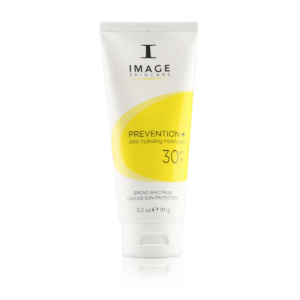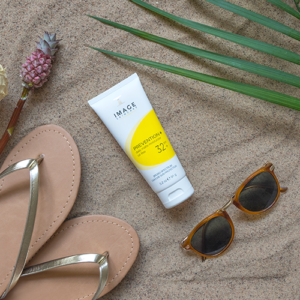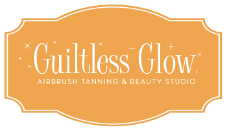Sunscreen vs. Sunblock
As you wander the aisles of your pharmacy or supermarket, you may see some products that say "sunscreen" and others that say "sunblock" – and you may be thinking: Is there a difference between sunscreen and sunblock? And if so, which one should I use? Although from a legal standpoint, the word "sunblock"is no longer supposed to be used – in 2011 the FDA passed regulation prohibiting companies to identify a product as a sunblock. Why did they do this?
Well the FDA believes the word "sunblock" causes consumers to overestimate the effectiveness of products. For example people often forget that sunscreen needs to be reapplied at least every two hours. In fact, all sunscreen brands are required by the FDA to put this language on our labels.
Despite this ban by the FDA, the word sunblock is still part of our everyday vernacular and that probably won't change. So I think it's important to understand the difference since on the web, in magazines and else where you'll still hear the term "sunblock".
So what is the difference? Here's what you need to know to figure out which kind to buy.



They Protect Your Skin in Different Ways
Many people use the words sunscreen and sunblock interchangeably, but they are two entirely different forms of sun protection.
- Sunscreen: Sunscreen is the more commonly used type of sun protectant. It filters or screens the sun's ultraviolet (UV) rays. It keeps most rays out but lets some in. It may also be called a chemical sunscreen.
- Sunblock: Sunblock, on the other hand, reflects the sun's rays from the skin, blocking the rays from penetrating the skin. It may be called a physical sunscreen.
Sunscreen and sunblock are both excellent forms of sun protection. The American Academy of Dermatology (AAD) doesn't advise using one over the other, so long as the one that you choose protects against both UVA and UVB rays (if it does, it will say "broad-spectrum" on the label), has a Sun Protection Factor (SPF) of 30 or higher, and is water-resistant. Just make sure that you apply it correctly.
Another important note: Fewer products these days are called "suntan lotion," but if you see any with this label, avoid them. They usually have an SPF of less than 15 or they are oils that don't protect you from the sun at all.
They Contain Different Ingredients
Each type of sunscreen or sunblock uses different chemicals to protect the skin against the sun's damaging UV rays.
- Sunblocks: Most sunblocks utilize titanium oxide or zinc oxide as the active ingredient, which results in a thicker, more opaque consistency. Some consider this to be a disadvantage because the consistency makes it difficult to spread all over the body. Secondly, many sunblocks are opaque and can be seen on the skin after application – and this may be aesthetically unappealing to you. You may notice people wearing sunblock, especially at the beach, because they will often have a streak of sunblock on their noses and on other parts of their faces. There are some brands, like Neutrogena, that offer a less-visible sunblock. Baby sunblocks contain only titanium dioxide and/or zinc oxide. They are appropriate for children aged six months or older.
- Sunscreens: Sunscreens use a variety of chemicals that work to absorb harmful UV rays before they penetrate your skin. Some have active ingredients including oxybenzone or avobenzone. Some people are sensitive to or allergic to certain ingredients in sunscreen like PABA (para-aminobenzoic acid) and choose to use sunblock instead of sunscreen. Checking the label is important if you want to avoid fragrances or oils that are often added to sunscreens. Also, some sunscreens are formulated to include insect repellant, either a natural type or one that includes artificial chemicals. The AAD doesn't recommend using these because sunscreen should be applied liberally and reapplied often, while insect repellant should be used sparingly and less often.
Many brands today are a blend of sunscreen and sunblock, so it's important to check the label if you have a sensitivity to certain chemicals.
The Bottom Line on Sunscreens and Sunblocks
Both sunscreen and sunblock provide protection against the sun. If you are sensitive to or allergic to certain ingredients, then that may guide your decision. If you aren't sensitive to or allergic to certain ingredients, then it's simply a matter of personal preference.
Ask your spray tan artist about what sun protection product would be right for you.
American Academy of Dermatology. Sunscreen FAQs
